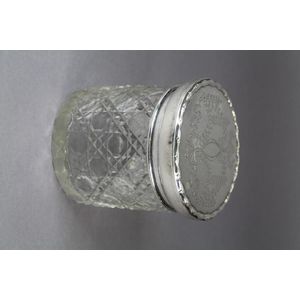French Champleve Enamel Clock Set, 1880
You must be a subscriber, and be logged in to view price and dealer details.
Subscribe Now to view actual auction price for this item
When you subscribe, you have the option of setting the currency in which to display prices to $Au, $US, $NZ or Stg.
- Pendulum - The pendulum was discovered around 1602 by Galileo Galilei, and was adopted for time keeping by the Dutch mathematician and natural philosopher, Christiaan Huygens, who excelled in astronomy, physics, and horology.
The pendulum comprises a metal rod usually of brass or steel with a metal disk, known as a bob, at the end. The movement of the pendulum is driven by weights or a spring, and as a pendulum swings in a regular arc, it was found accuracy could be controlled to within a few seconds a week.
Timekeeping can be adjusted by changing the height of the bob on the rod, making the pendulum either swing slower or faster.
The disadvantage of the pendulum was that changes in temperature also changed the length of the pendulum, interfering with the accuracy of the clock, and so in the 18th century two types of mercurial pendulums were invented which countered the movement in the steel rod.
The pendulum was the world's most accurate timekeeping technology until the invention of the quartz clock, regulated by a quartz crystal, in 1927. - Circa - A Latin term meaning 'about', often used in the antique trade to give an approximate date for the piece, usually considered to be five years on either side of the circa year. Thus, circa 1900 means the piece was made about 1900, probably between 1895 and 1905. The expression is sometimes abbreviated to c.1900.
This item has been included into following indexes:
Visually similar items

A carved gilt-wood oval wall mirror with shell and leaf border, 40 cm high

Vintage French two bottle inkstand on wooden base, with chrome metal mounts, 30 cm wide

Hardy Bros sterling silver lidded dressing table jar on Edwardian crystal, decorated with flowers and bow tie, 9 cm high, 8 cm dia, 43g lid weight

A signed Satsuma three piece tea service. Meiji period, late 19th century, comprising a teapot, and covered milk jug and sugar bowl, all of ovoid design with domed lids and loop handles, finely and intricately embellished with birds in a floral water lands
